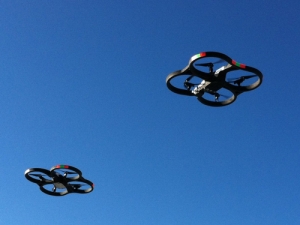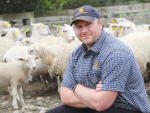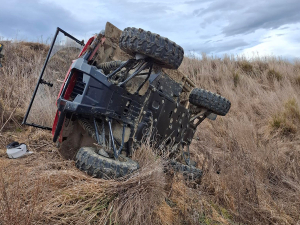A world expert in precision agriculture says there is much misplaced hype about the use of UAV’s (drones).
Professor Ian Yule, Massey University, says while many people are talking enthusiastically about using drones on farms, these have limitations and are not suitable or cost-effective, especially on larger farms.
A drone must stay within its operator’s line of sight and this is impossible on sheep and beef farms unless only a small area is being covered, he says.
While Massey uses small drones, its main focus is on the use of a hyperspectral sensor in an aircraft; this can do more things better and is more robust than a drone.
The larger sensor makes possible much more consistent results.
“The problem with UAV instruments at the moment is they are pretty simple and we know from experiments that if the lighting conditions change then so do your results. If you want to measure pasture or a crop in two weeks time and the light conditions change then the UAV can give you a significantly different result; that is an issue [compared to] the hyperspectral sensor.
“When you want to cover, say, a sheep and beef farm, you can’t do this with a drone; it’s much slower and it needs people on the ground to operate it.”
Yule says the drone is probably not as cost-effective as having a larger instrument in an aircraft. But the drone may have a place in horticulture where the areas to be surveyed are smaller.
One advantage of the larger system is that a large amount of data can be collected on just one pass of the farm.
These look at nutrients, the amount of dry matter and the ME in the pasture.
“We can determine the amount of dead matter, whether an area of a pasture is under water stress; the sensor can tell us a whole lot of things. If you have, say, weeds in a crop or pasture we can understand because they have different spectra and we can pick that out and know it’s not ryegrass.”
Yule says with this technology one’s imagination is the limitation; it’s hard to get your head around the amount of information that can be collected.



















